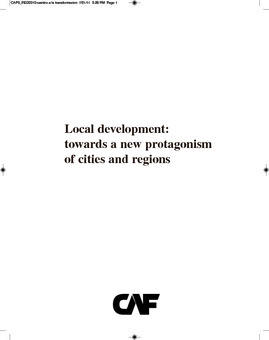| dc.contributor.author | Baez, Maria Josefina | |
| dc.contributor.author | Brassiolo, Pablo | |
| dc.contributor.author | Estrada, Ricardo | |
| dc.contributor.author | Fajardo, Gustavo | |
| dc.coverage.spatial | Uruguay | es_ES |
| dc.date.accessioned | 2021-12-22T20:36:38Z | |
| dc.date.available | 2021-12-22T20:36:38Z | |
| dc.date.issued | 2021-12-22 | |
| dc.identifier.citation | Baez, M. J., Brassiolo, P., Estrada, R., & Fajardo, G. (2021, December 22). Going subnational: wage differentials across levels of government in Brazil, Mexico and Uruguay. Caracas: CAF. Retrieved from https://scioteca.caf.com/handle/123456789/1856 | en |
| dc.identifier.uri | https://scioteca.caf.com/handle/123456789/1856 | |
| dc.description.tableofcontents | Workers at subnational governments play a prominent role in the delivery of public services in most countries. Yet, information about their remuneration is scarce. Using data for Brazil, Mexico and Uruguay, we document that national government employees earn on average higher wages than observationally
similar subnational employees; consequently, public-private sector wage gaps vary significantly by level of government. Then we use individual fixed-effects to estimate the wage premium to public sector employment (the wage gap net of selection effects) for Brazil and Mexico. We find that i) both national and subnational public employees receive a significant wage premium with respect to private sector employment; and ii) the difference between the national and subnational wage premiums is small in Brazil and null in Mexico. | es_ES |
| dc.language.iso | en | es_ES |
| dc.publisher | CAF | es_ES |
| dc.subject | Economía | es_ES |
| dc.subject | Investigación socioeconómica | es_ES |
| dc.subject | Políticas públicas | es_ES |
| dc.subject | Sector público | es_ES |
| dc.title | Going subnational: wage differentials across levels of government in Brazil, Mexico and Uruguay | es_ES |
| dc.type | workingPaper | es_ES |
| dc.publisher.city | Caracas | es_ES |




